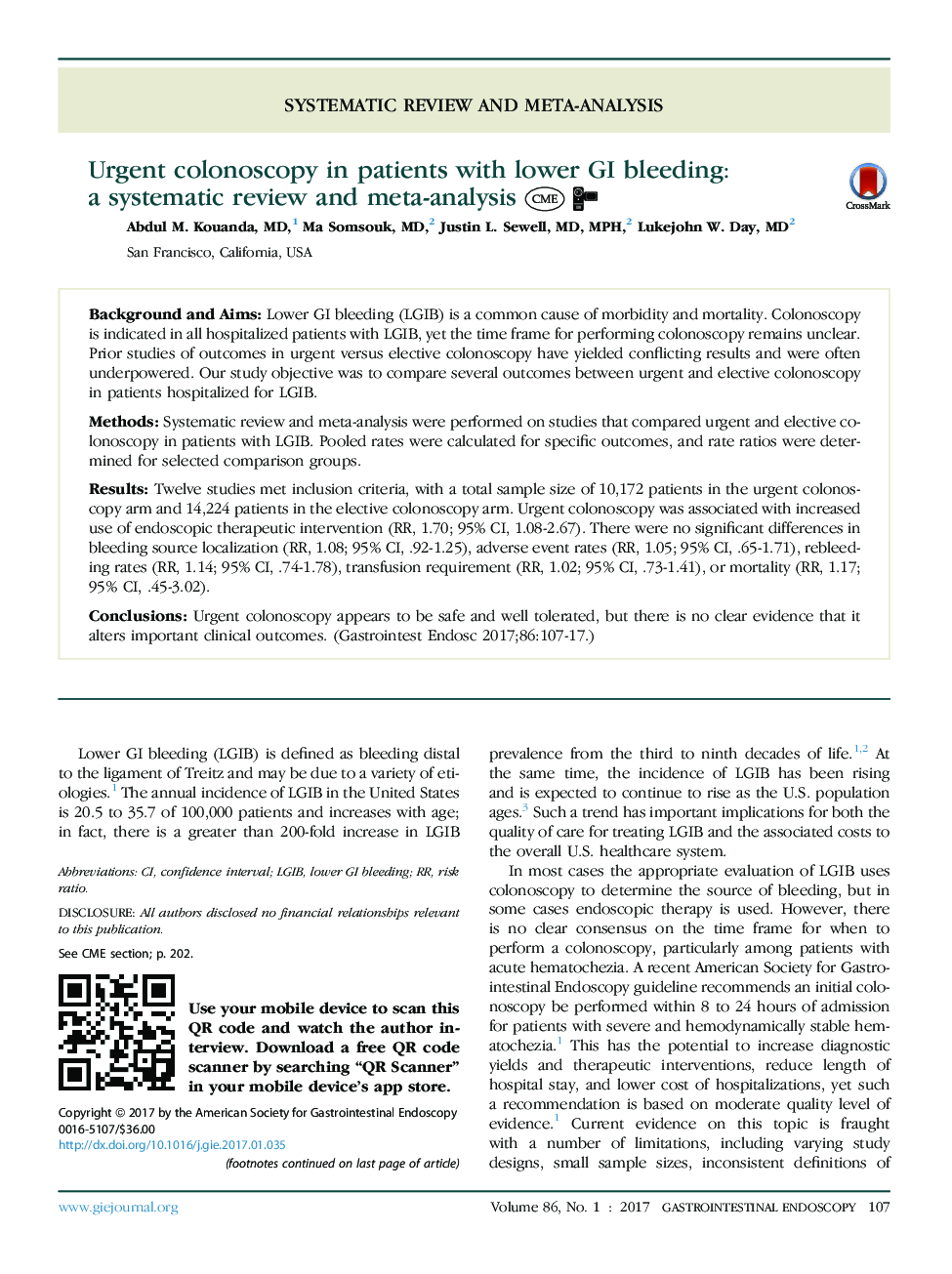| Article ID | Journal | Published Year | Pages | File Type |
|---|---|---|---|---|
| 5659644 | Gastrointestinal Endoscopy | 2017 | 12 Pages |
Background and AimsLower GI bleeding (LGIB) is a common cause of morbidity and mortality. Colonoscopy is indicated in all hospitalized patients with LGIB, yet the time frame for performing colonoscopy remains unclear. Prior studies of outcomes in urgent versus elective colonoscopy have yielded conflicting results and were often underpowered. Our study objective was to compare several outcomes between urgent and elective colonoscopy in patients hospitalized for LGIB.MethodsSystematic review and meta-analysis were performed on studies that compared urgent and elective colonoscopy in patients with LGIB. Pooled rates were calculated for specific outcomes, and rate ratios were determined for selected comparison groups.ResultsTwelve studies met inclusion criteria, with a total sample size of 10,172 patients in the urgent colonoscopy arm and 14,224 patients in the elective colonoscopy arm. Urgent colonoscopy was associated with increased use of endoscopic therapeutic intervention (RR, 1.70; 95% CI, 1.08-2.67). There were no significant differences in bleeding source localization (RR, 1.08; 95% CI, .92-1.25), adverse event rates (RR, 1.05; 95% CI, .65-1.71), rebleeding rates (RR, 1.14; 95% CI, .74-1.78), transfusion requirement (RR, 1.02; 95% CI, .73-1.41), or mortality (RR, 1.17; 95% CI, .45-3.02).ConclusionsUrgent colonoscopy appears to be safe and well tolerated, but there is no clear evidence that it alters important clinical outcomes.
